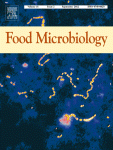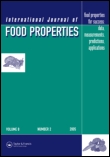 The American Honey Producers Association has apparently retracted an online article that said Honey Holding — a.k.a Honey Solutions, an industrial honey processor — had been charged with tax evasion and illegally selling Chinese honey containing corn syrup and sugar. According to the note:
The American Honey Producers Association has apparently retracted an online article that said Honey Holding — a.k.a Honey Solutions, an industrial honey processor — had been charged with tax evasion and illegally selling Chinese honey containing corn syrup and sugar. According to the note:
AHPA has removed the article from its website, and is correcting and retracting the inaccurate statements with this posting.
The allegations were posted in the News section of the AHPA’s website in March, according to Honey Holding. The company said that the information was obtained from a since retracted Pittsburgh Tribune-Review article published two days before.
Here’s more from the note from the AHPA:


 Guangwen Tang, a rice researcher at Tufts University, landed in hot water in 2012 after her team was accused of feeding Chinese children genetically modified
Guangwen Tang, a rice researcher at Tufts University, landed in hot water in 2012 after her team was accused of feeding Chinese children genetically modified 



